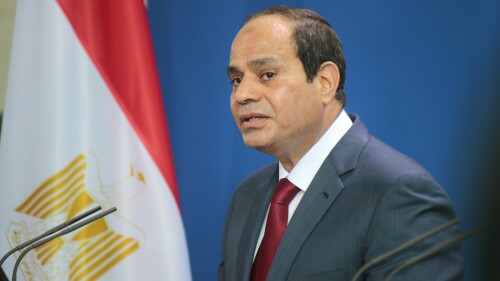Dramatic shifts are rare in American foreign policy. One undeniable example is the Trump administration’s decision last week to cease funding the United Nations Relief and Works Agency, the main U.N. agency giving aid to Palestinians. At once a nearly 70-year-old Gordian knot has been cut, but what comes next?
From UNRWA’s 1949 founding on, each U.S. administration had ignored the agency’s central role in prolonging the Arab-Israeli conflict. As we pointed out in our 2013 book, “Religion, Politics and the Origins of Palestine Refugee Relief,” the U.S. has aimed since the early 1950s to stabilize Palestinian society through the delivery of aid, providing more than a quarter of UNRWA’s funding. But the effect has been to foster Palestinian dependence on foreign support. As the current administration recognizes, Palestinian elites continue to demand aid even as they fulminate against the U.S. in every way.
The decision to cut UNRWA’s funding corresponds with the Trump administration’s broader perspective on foreign policy. Like trade policy, the U.N. and the North Atlantic Treaty Organization, President Trump insists that foreign aid must benefit the U.S. in a more substantial way than merely sustaining stability. UNRWA does not, and has not. It retards the development of Palestinian civil institutions and affirms several of the Palestinians’ self-defeating grievances.
The so-called right of return for Palestinian refugees, which UNRWA promulgates through its educational and policy organs, bolsters a sense of disenfranchisement among Palestinians throughout the world. UNRWA’s definition of “refugees” to include millions who never set foot in British Mandate-era Palestine runs counter to international law and practice. And in the long run, the agency’s assumption of duties that ought to belong to the Palestinian people might slow the emergence of a two-state solution to the standoff with Israel.
The Palestinian Authority must now overcome its shock and rage and recognize reality. Reports that they are betting on Democrats’ winning control of Congress in November indicate they are betting on the past. Even if the Democrats win, they will be unlikely to build enough support to sustain funding over the president’s veto.
Some members of the U.S. and Israeli defense establishments also have fretted about the defunding of UNRWA, but their worries are misguided. They fear that Israel will have to assume responsibility for the education and health care UNRWA currently provides Palestinians. But in doing so they underrate the value of President Trump’s commitment to letting developing nations sink or swim, taking greater ownership of their own social welfare.
Meanwhile the European Union will likely try to replace the lost funding. But the fiscal problems and local migration crises in European nations will make it difficult to collect the funds. As with NATO, Iran and other issues, Europe eventually will follow America’s lead.
To ensure that the new approach is effective, the U.S. must redirect aid to specific Palestinian institutions—schools, hospitals and other social cornerstones—with or without the help of the Palestinian Authority. The total collapse of infrastructure would serve neither Palestinians nor any party interested in peace.
The next step for the Trump administration is to persuade Americans of the benefits that will emerge from sidelining UNRWA. The administration recognizes the ways Palestinian grievances have delayed the emergence of peace in the Middle East, and it knows American taxpayers are willing to support countries and causes that further the goal of a peaceful world. They will not support dependence and anti-American hostility, causes UNRWA has advanced since its beginning.
This new direction has come at a transitional moment in Palestinian politics. With reports that Palestinian Authority President Mahmoud Abbas is in failing health, new leaders will soon emerge to determine the direction of Palestinian society. In particular, they will have the crucial task of preventing Hamas from taking control of the West Bank. But if a moderate democratically elected leader does not emerge, the U.S. should administer aid directly to various Palestinian cities and regions until viable politics—free of Hamas and extremism—can be reconstituted.
The onus has been shifted, and previous understandings swept aside. Israelis must respond with imagination and magnanimity and Palestinians with the recognition that this is not 1948, 1967 or 1993. The UNRWA decision is a new opportunity, and Palestinians should embrace it.
Alexander Joffe is a Ginsburg-Ingerman Fellow at the Middle East Forum.
Asaf Romirowsky is the executive director of Scholars for Peace in the Middle East (SPME) and a Writing Fellow at the Middle East Forum.







